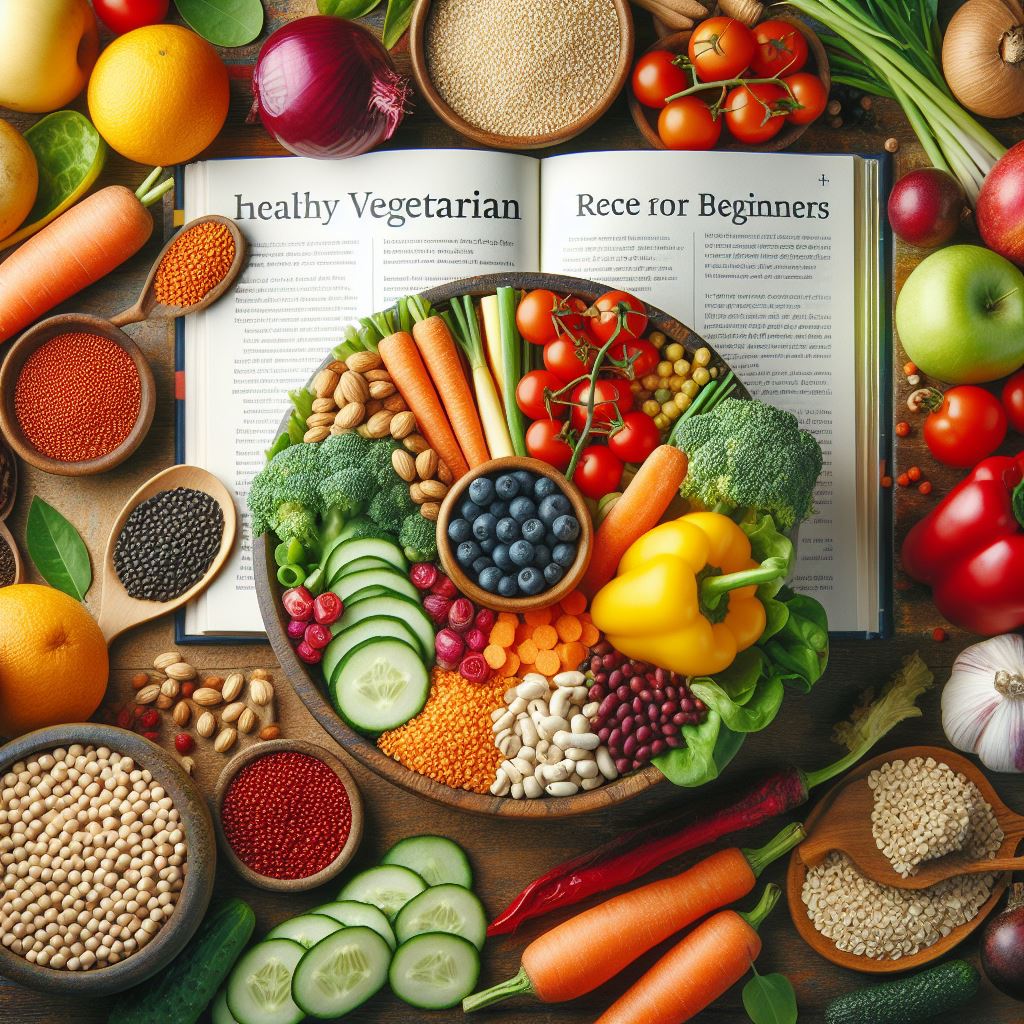
In today’s culinary landscape, vegetarianism has surged in popularity, not only for its health benefits but also for its positive impact on the environment and animal welfare. Vegetarianism involves abstaining from consuming meat, fish, and poultry, and often extends to avoiding products derived from animals, such as gelatin or certain types of cheese. While the idea of shifting to a vegetarian diet might seem daunting at first, especially for beginners, it opens up a world of exciting culinary possibilities and benefits.
Benefits of Vegetarianism for Beginners
One of the primary reasons many individuals choose to embrace vegetarianism is for its numerous health benefits. Research has shown that vegetarian diets, when well-planned, can contribute to lower risks of chronic diseases such as heart disease, hypertension, type 2 diabetes, and certain types of cancer. By focusing on whole plant foods such as fruits, vegetables, whole grains, legumes, nuts, and seeds, vegetarians often consume more fiber, vitamins, and antioxidants, which are essential for overall health and well-being.
Moreover, vegetarianism also offers significant environmental advantages. Animal agriculture is a leading contributor to deforestation, water pollution, and greenhouse gas emissions. By reducing or eliminating meat consumption, individuals can help mitigate environmental degradation and promote sustainable food systems. Additionally, adopting a vegetarian diet aligns with ethical considerations for many people who seek to minimize harm to animals and promote more compassionate treatment of sentient beings.
Getting Started: Essential Ingredients
Transitioning to a vegetarian lifestyle begins with stocking your kitchen with essential ingredients that will form the foundation of your meals. Building a well-rounded pantry is key to creating delicious and nutritious vegetarian dishes. Some basic pantry staples include grains such as rice, quinoa, pasta, and oats; legumes like beans, lentils, and chickpeas; canned tomatoes and vegetable broth for soups and sauces; olive oil, herbs, and spices for flavoring; and nuts and seeds for added texture and nutrition.
In addition to pantry staples, fresh produce plays a vital role in vegetarian cooking. Load up on a colorful array of fruits and vegetables, including leafy greens, bell peppers, carrots, tomatoes, cucumbers, avocados, berries, and citrus fruits. Aim to include a variety of produce in your meals to ensure you’re getting a wide range of vitamins, minerals, and phytonutrients. When selecting fruits and vegetables, opt for organic and locally sourced options whenever possible to support sustainable farming practices and reduce pesticide exposure.
Furthermore, incorporating plant-based protein sources is essential for meeting your daily protein needs as a vegetarian. Some excellent sources of vegetarian protein include tofu, tempeh, seitan, edamame, lentils, chickpeas, black beans, quinoa, and nuts. Experiment with different protein-rich foods to add variety to your meals and ensure you’re getting all the essential amino acids your body needs to thrive.
Simple Breakfast Ideas for Beginners
Breakfast is often touted as the most important meal of the day, and as a beginner vegetarian, there are plenty of delicious and nutritious options to start your morning off right. Whether you prefer sweet or savory, there’s something for everyone when it comes to vegetarian breakfasts.
One easy and versatile breakfast option is overnight oats. Simply combine rolled oats with your choice of milk (dairy or plant-based), chia seeds, a touch of sweetener like maple syrup or honey, and your favorite toppings such as fresh fruits, nuts, seeds, or nut butter. Let the mixture soak in the fridge overnight, and wake up to a satisfying and convenient breakfast that requires no cooking.
Another classic vegetarian breakfast is avocado toast. Mash ripe avocado onto whole grain toast and season with a sprinkle of salt, pepper, and red pepper flakes for a kick of heat. Get creative with your toppings by adding sliced tomatoes, crumbled feta cheese, poached eggs, smoked salmon, or a drizzle of balsamic glaze. Avocado toast is not only delicious but also packed with healthy fats, fiber, and vitamins to keep you feeling full and energized throughout the morning.
For a refreshing and nutrient-rich breakfast option, whip up a smoothie bowl. Blend together frozen fruits like berries, bananas, mangoes, or pineapple with leafy greens such as spinach or kale, a source of protein like Greek yogurt or plant-based protein powder, and a splash of liquid such as almond milk or coconut water until smooth and creamy. Pour the smoothie into a bowl and top with your favorite toppings such as granola, sliced fruits, shredded coconut, chia seeds, or a drizzle of honey or nut.







